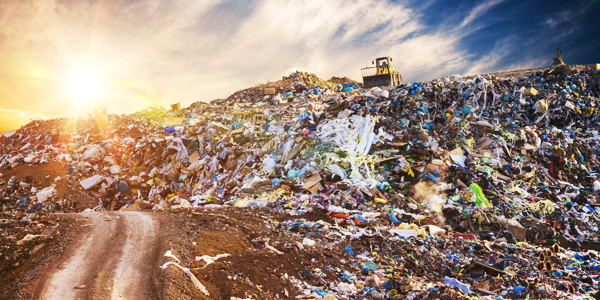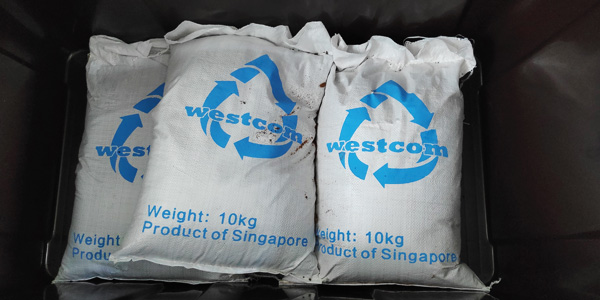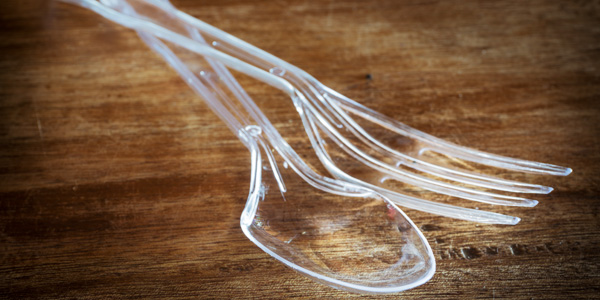INNOVATE
A*STAR works with local company to turn food waste into fertiliser in 24 hours
SINGAPORE - Take a tonne of rice- chicken- fish - noodles and other leftovers from the lunch of a few hundred people.

Put all of that into a machine and within 24 hours that mountain of scrap will be turned into fertiliser for gardens.
One such machine is now located at JTC's Pandan Loop Industrial Estate which is among several sites serving as a a test-bed for new ways to reduce waste. The other sites include Jurong-Clementi Town Council and the Khoo Teck Puat Hospital.
The food digester at the JTC estate was developed in a joint public-private collaboration- between the Agency for Science- Technology and Research (A*STAR)- and Westcom Solutions- which specialises in food waste reduction and recycling services.
This is how it works. The food waste is dumped into the machine first- then microbes - small micro-organisms that break down the food waste into simpler organic materials - are added to the mix.
In the machine the chemical process of digestion takes one day- while other food digesters in the market take a week or more to do the same.
The microbes used in the machine are specially tailored to efficiently break down the oily and rich food found in the diet of Singaporeans.

The microbes- Westcom Solutions says- work better on Singaporean food waste in comparison to those used to digest leftover rice and fish in other countries such as Japan.
Westcom's digesters reduce the volume of food waste by up to 90 per cent- with the remaining 10 per cent converted into an odourless organic fertiliser.
The digester at Pandan Loop has the capacity to produce about a ton of fertiliser every month - which is repackaged and sold.
Apart from reducing the need for us to do more incineration and take up precious land from our only landfill- it is also about building an ecosystem for the circular economy where we close the loop of food waste.
Senior Minister of State of State for Trade and Industry Dr Koh Poh Koon who visited the Pandan Loop Industrial Estate to view the food digester on Monday (Dec 10).
Over 800-000 tonnes of food waste was generated in Singapore in 2017 or an estimated 140kg per person on the island. But only 16 per cent of the food waste in the Republic is recycled- said the National Environment Agency.

"There is a lot of headroom for us to do a lot more-" Dr Koh said.
He said that in the light of Singapore's commitments to the 24th session of the Conference of the Parties to the UN Framework Convention on Climate Change or COP24- the country can leverage on the use of new research and development tools- like the Westcom food digester- to meet the diverse needs of other nations.
Although Singapore is a small emitter- as a technology provider- we can do a lot more for the global community-" Dr Koh said- citing the food digester as an example of a sustainable way of repurposing waste.
Dr Koh citing the food digester as an example of a sustainable way of repurposing waste.
Innovations such as that of the food digester- Dr Koh said- could add to Singapore's contributions towards combating global warming.
Mr David Tan- CEO of Westcom Solutions- said that food waste recycling machines could contribute effectively to the ecosystem while giving businesses up to 60 per cent in cost savings over time.
Even households can use a small- 5 kg machine...If everyone can do food waste recycling- it can cut down the waste we put into Singapore's limited land space.
Mr David Tan- CEO of Westcom Solutions
Westcom and A*STAR are currently exploring further collaborations in other areas of sustainable waste management- including finding a way to break down bio-degradable plastics that are commonly disposed along with food waste- such as straws and plastic cutlery.

"If we're able to find instances where we're able to reduce our environmental footprint- we can create the opportunity for better products that come from recycling waste-" said Professor Tan Sze Wee- executive director of the Science and Engineering Research Council at A*STAR.
"This is the right direction to go- and using new technologies- we can reduce waste and improve Singapore's sustainability."
Was the article helpful?
A*STAR celebrates International Women's Day

From groundbreaking discoveries to cutting-edge research, our researchers are empowering the next generation of female science, technology, engineering and mathematics (STEM) leaders.
Get inspired by our #WomeninSTEM
